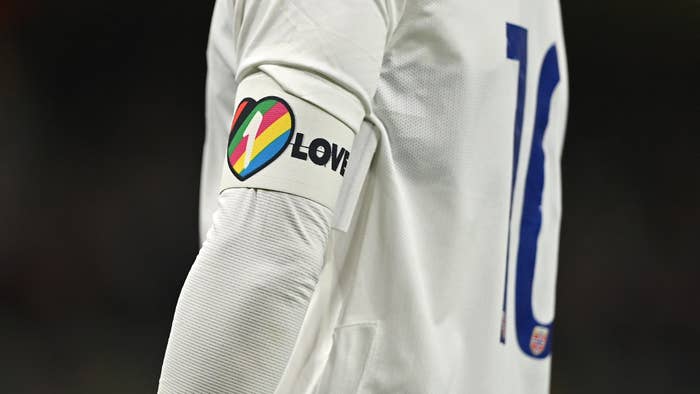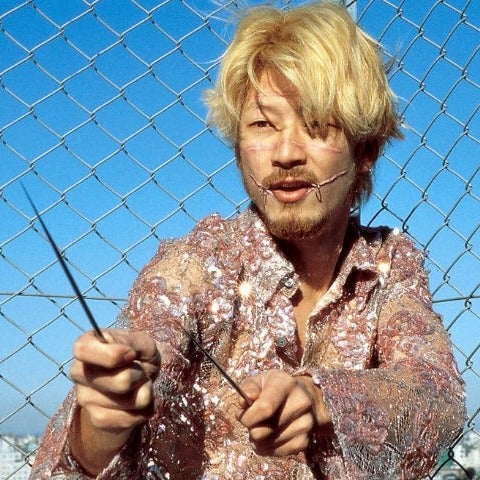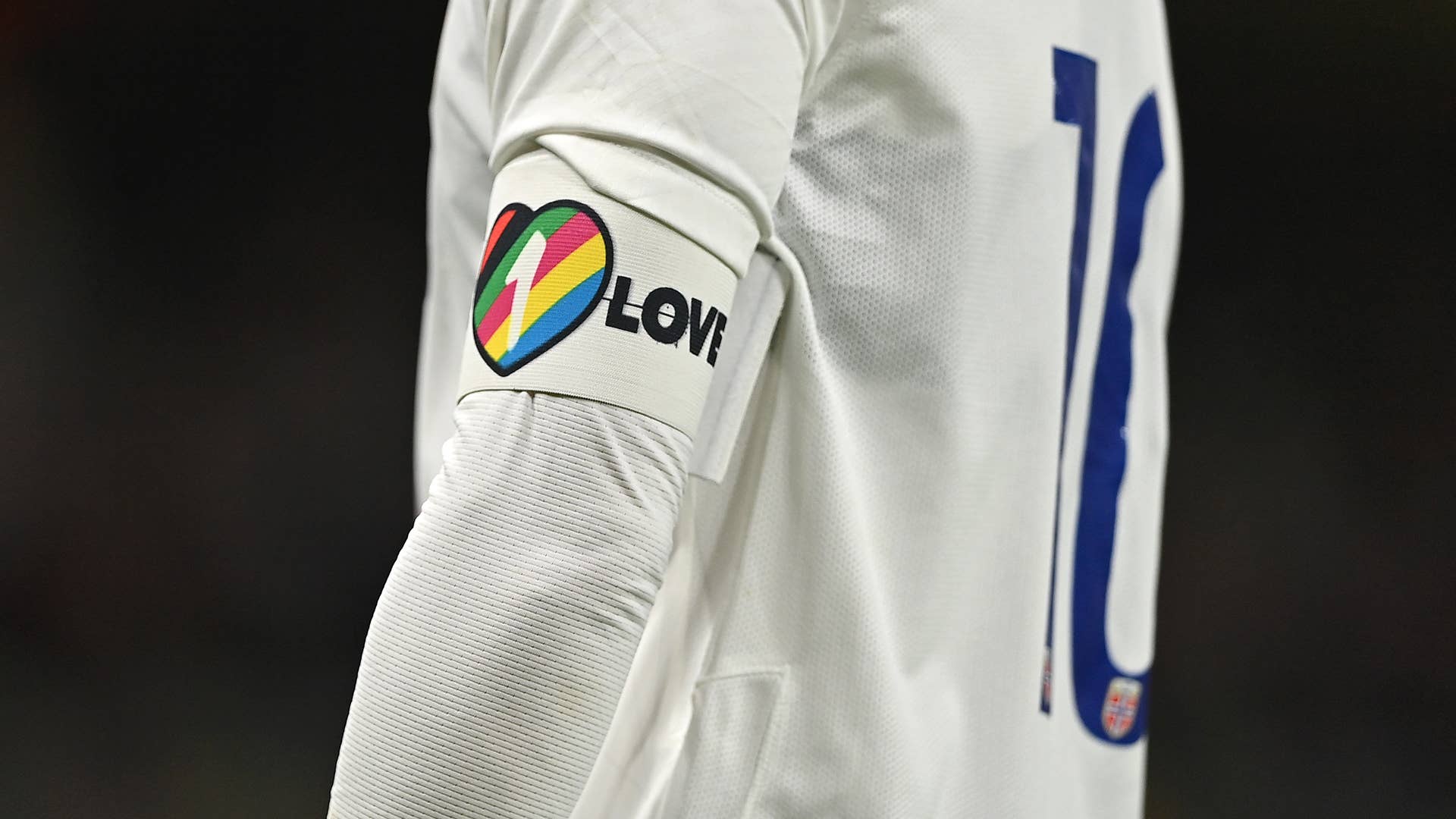
Captains from seven European teams participating in the World Cup games have scrapped plans to wear “One Love” armbands amid threats of punishment from FIFA, the Associated Press reports.
Less than a day before players were expected to participate in the World Cup with armbands, which showcase support for LGBTQ+ rights, FIFA said anyone seen wearing it during a match will be given a yellow card. Many of the European teams expected to be fined for the armbands, which were launched as part of a campaign in the Netherlands supporting inclusion and diversity in soccer.
Homosexuality is criminalized in Qatar, and the nation as well as FIFA has faced intense scrutiny ever since the country was awarded World Cup hosting rights in 2010. England’s Harry Kane, Wales’ Gareth Bale, and the Netherlands’ Virgil van Dijk were expected to wear the armband during Monday’s scheduled games. Captains of the Danish, Swiss, Belgian, and German teams were also planning to wear them in their forthcoming games.
“As national federations we can’t put our players in a position where they could face sporting sanctions, including bookings,” said the seven teams in a statement. England’s Football Supporters association criticized the decision, and said it shows FIFA’s “true values by giving the yellow card to players and the red card to tolerance.”
Jakob Jensen, head of the Danish soccer federation, said that he’s “extremely disappointed with FIFA.” In an interview with Danish broadcaster TV2, Jensen added, “They have known about our position for a long time. We stand for inclusion, just like FIFA says they stand for inclusion. I don’t see how our message is in conflict with the messages FIFA wants to send.”
The decision comes just days after Qatar banned the sale of alcoholic beer at stadiums hosting 2022 World Cup games. FIFA received the request to ban beer directly from the Qatari royal family, although alcohol will still be sold in designated areas around the stadiums. The governing soccer body has a $75 million sponsorship agreement with Budweiser.

